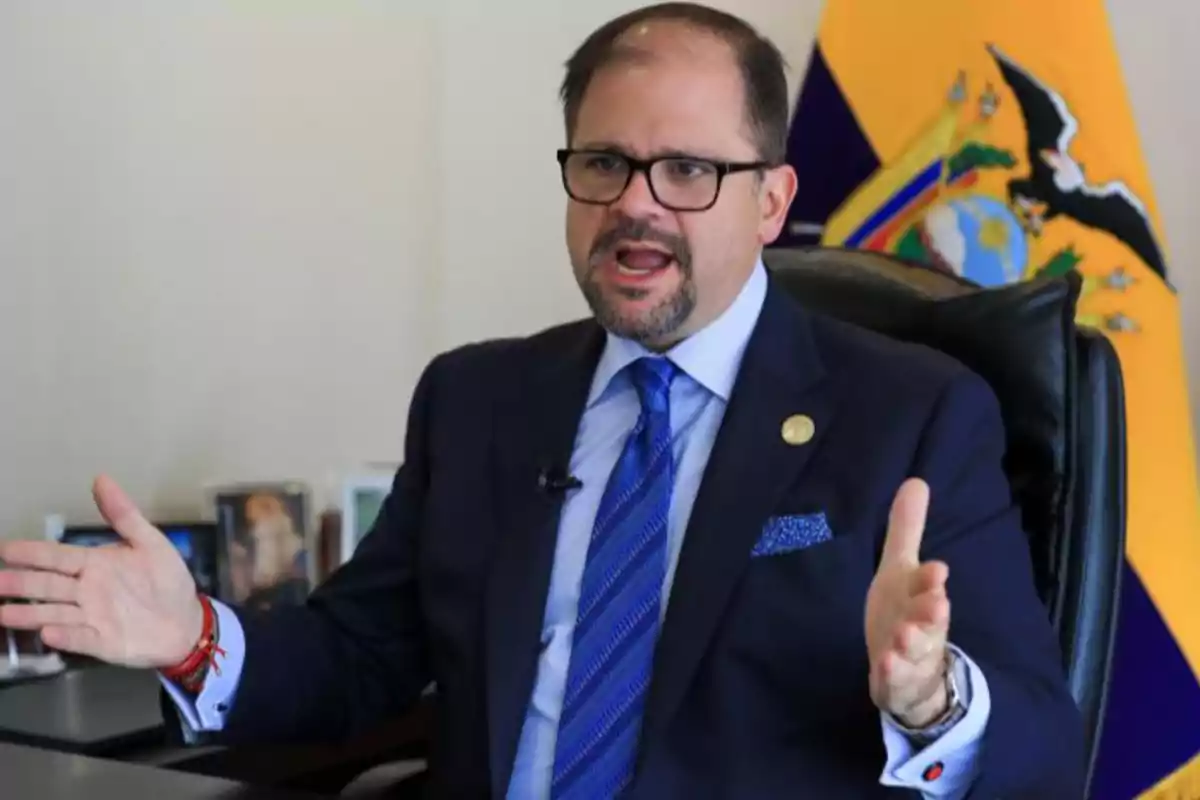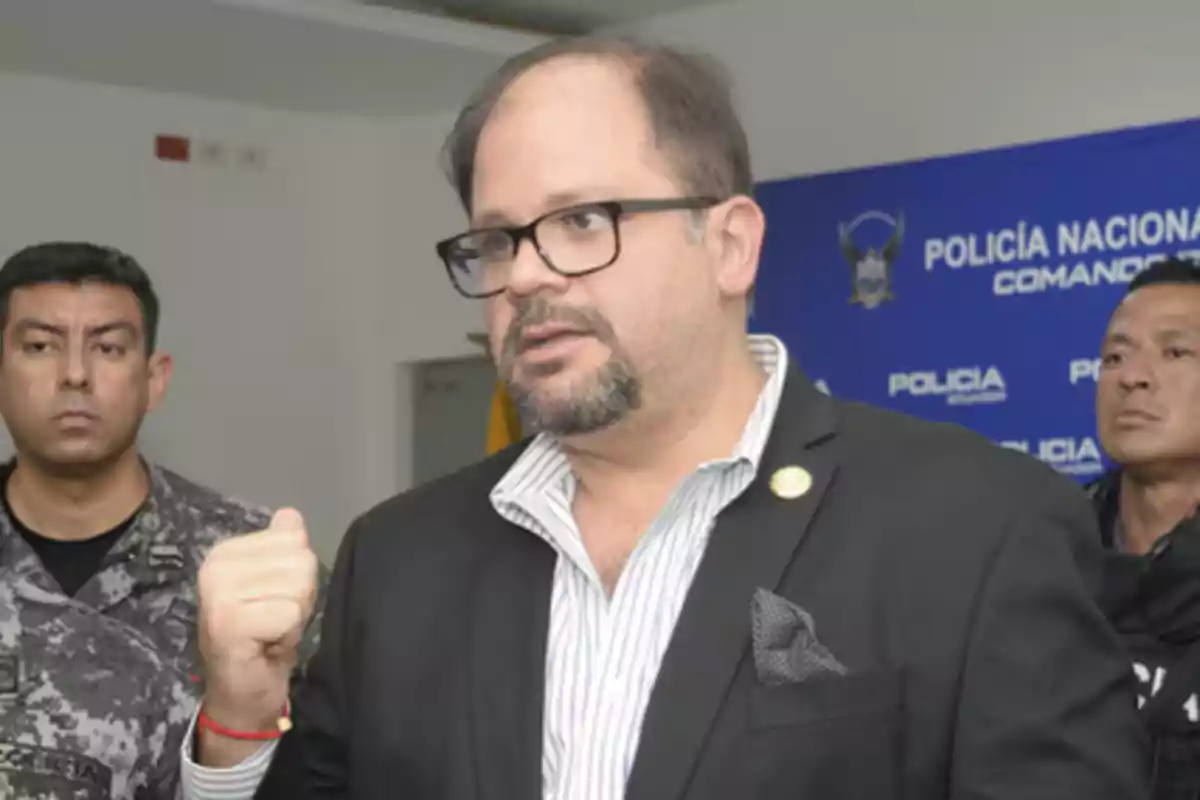
Minister Reimberg supported the judicial emergency in Ecuador
The Government defended the public exposure of judges who allegedly favored organized crime
Minister of the Interior John Reimberg supported the new Public Integrity Law, approved by the Assembly on June 24, as a key tool to declare the Judicial Branch in a state of emergency. According to his explanation, this measure seeks to address a structural crisis that has become a direct risk to public safety.
Reimberg emphasized that corruption in the Ecuadorian judicial system is no longer a technical problem but has become a lethal threat: "Today, unlike 15 or 20 years ago, people are dying in the streets because of that corruption." For this reason, he defended the policy of publicly revealing the names of judges who, according to investigations, may have benefited criminal organizations with their decisions.
The minister explained that before mentioning a judge or prosecutor, he reviews at least ten cases. "This is not persecution, it's accountability," he stated. He questioned the fact that some magistrates release detainees for reasons such as kidney stones or cosmetic surgeries, ignoring the public's outcry for real justice.
The law allows the judicial system to be declared in a state of emergency in order to carry out urgent reforms, speed up selection processes, and replace inefficient officials. In addition, it enables extraordinary evaluations based on technical criteria, without the need to wait for the end of the current judges' and prosecutors' terms.

Reimberg stated that the Police and Armed Forces have fulfilled their duties, but that without a clean justice system, the effort is insufficient. He stressed that this reform will "put a stop" to the influence of criminal organizations in the courts.
He also replied to questions about the delay in appointing new members to the Judiciary Council. The minister avoided criticizing the Executive and supported President Noboa: "If he's doing it this way, there must be a reason," he declared.
In a context where insecurity is the country's main problem, the new regulation represents a firm step by the Government toward institutional strengthening. The public exposure of officials linked to questionable acts reinforces a clear message: there will be no impunity.
The Government's management prioritizes transparency and security as essential pillars. Faced with a compromised judicial system, the Public Integrity Law marks a turning point to restore public trust and combat criminal structures at their roots.
More posts: